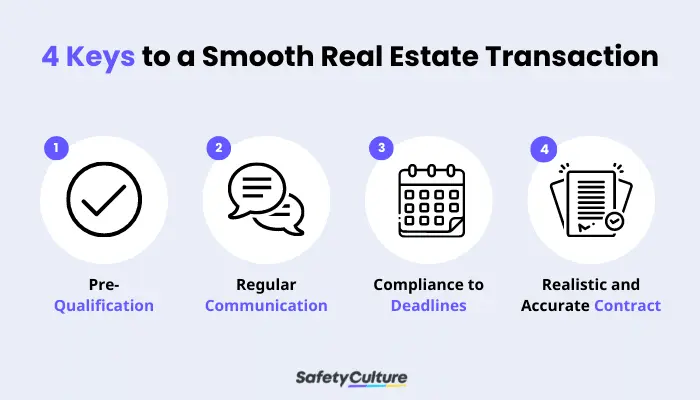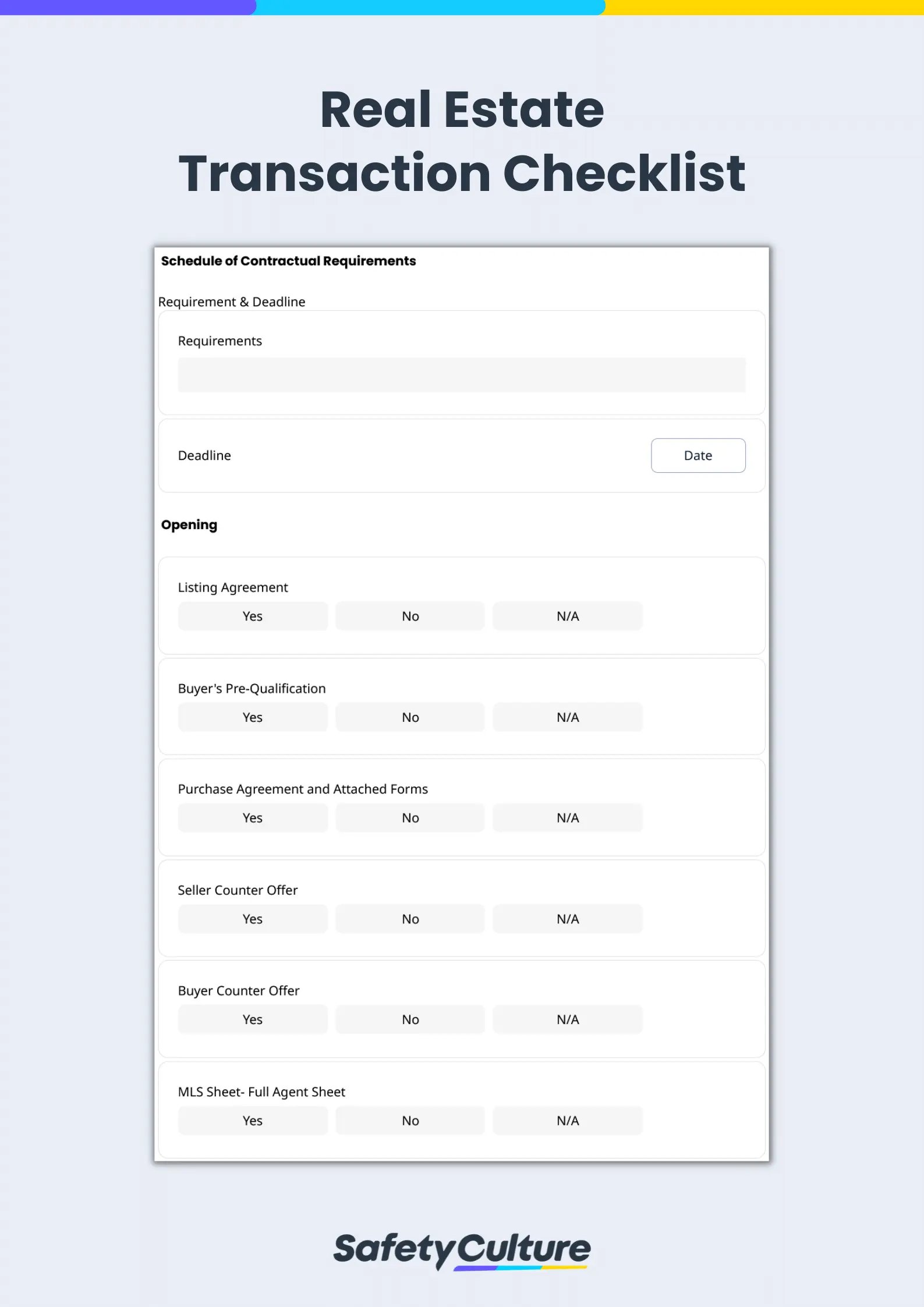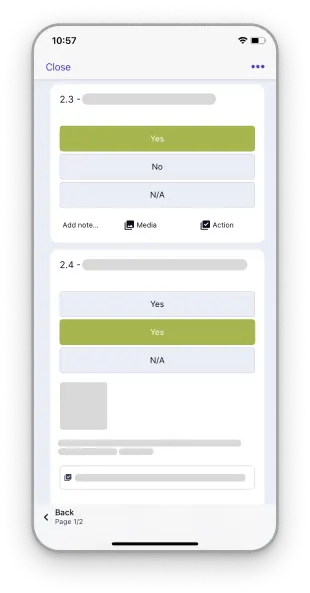What is a Real Estate Transaction Checklist?
A real estate transaction checklist helps facilitate a simpler, fairer, and timely sales process for both buyer and seller. This tool can be used by transaction coordinators, realtors, and escrow officers to ensure that all parties are in compliance with contractual obligations, as a breach in real estate contracts can result in lengthy court battles and costly lawsuits.
Real Estate Professionals
The business of buying, selling, and maintaining the good condition of real estate entails a lot of coordinated effort among many professionals in the industry. Here are some of the professionals in the real estate industry that help make the buying and selling of properties possible for property owners and prospective property or home buyers:
Agents – A real estate agent is a licensed professional who works very closely with buyers and sellers of property. Those who are selling their property typically partner with seller’s agents or listing agents while those who intend to buy real estate consult buyer’s agents or selling agents.
A listing agent helps advertise the sale of real estate and assists property owners in getting the best sales price possible.
Selling agents or buyer’s agents help prospective buyers find the ideal property based on the buyer’s preferences. Buyer’s agents coordinate with seller’s agents on the selection, inspection, and negotiation of properties up for sale. Agents also primarily make money through a real estate commission, which is a previously agreed-upon percentage of a property’s selling price.
If sellers, however, choose to directly put their property up for sale to avoid paying commissions, they can do so with the For Sale by Owner (FSBO) process. This is a real estate practice that allows owners to sell their property without the representation of agents or brokers.
Realtors – Realtors are real estate agents who are active members of the National Association of Realtors. A realtor carries out the same responsibilities as buyers’ and sellers’ agents and they are bound by a code of ethics that aims to prioritize their client’s best interests.
Inspectors – Handling one of the most crucial roles in making sure that properties are in compliance with regulations, inspectors check and help confirm that properties are in good livable conditions. They conduct home inspections, checking the property’s structure, HVAC, floors, and other features to help ensure that the real estate is indeed meeting the potential buyers’ expectations.
Inspectors are typically called to inspect the property right after an offer has been agreed upon by both buyers and sellers but before a real estate contract is signed by both parties.
4 Keys to a Smooth Real Estate Transaction
Real estate transactions entail the largest financial investments in the lifetime of most buyers, and they need to be executed as smoothly and expeditious as possible to avoid costly contract breaches and protect such investments. Here are 4 keys on how to ensure a smooth transaction for clients:

Keys to a Smooth Real Estate Transaction
- Get buyers pre-qualified
Real estate agents should urge buyers to get pre-qualified before officially engaging in real estate transactions. This helps ensure that the buyer is searching for properties that are appropriate to their actual purchasing capacity. Getting pre-qualified can help avoid frustration and disappointment as it also informs buyers of properties they can afford. - Have regular communication
Buyers, sellers, agents, escrow officers, transaction coordinators, and attorneys (if applicable) should maintain regular communication to reach an acceptable agreement with the most beneficial terms and keep important schedules in check. Buyers and sellers should always consult with their real estate agents as they are the ones that can provide valuable, legitimate input during the real estate transaction. Escrow officers and/or transaction coordinators must continually liaise with clients and monitor the timely completion of deadlines. Regular communication can help foster an efficient decision-making process and build rapport among all parties involved. - Stick to the schedule
“Time is of the essence” cannot be any more true when it comes to real estate transactions. Parties involved in the transaction should avoid missing deadlines as it can significantly hinder the process and lead to costly delays. A digital real estate transaction checklist can help outline important dates, such as property inspection schedules, availability of property insurance, and estimated closing date, and trigger automatic notifications (push, email, or SMS) when the dates are near. - Ensure a realistic and accurate contract
Finally, it is important for all parties engaged in the real estate transaction to lay down realistic expectations and accurate details in the real estate transaction checklist. By having a realistic and accurate contract, disagreements and potential legal disputes are avoided.
What are Real Estate Checklists?
Real estate checklists are tools used by real estate agents, brokers, realtors, and other professionals involved in the buying and selling of real estate. Depending on the type of real estate checklist being used, they also serve as a guide for seamless and transparent transactions between real estate professionals and prospective buyers.



